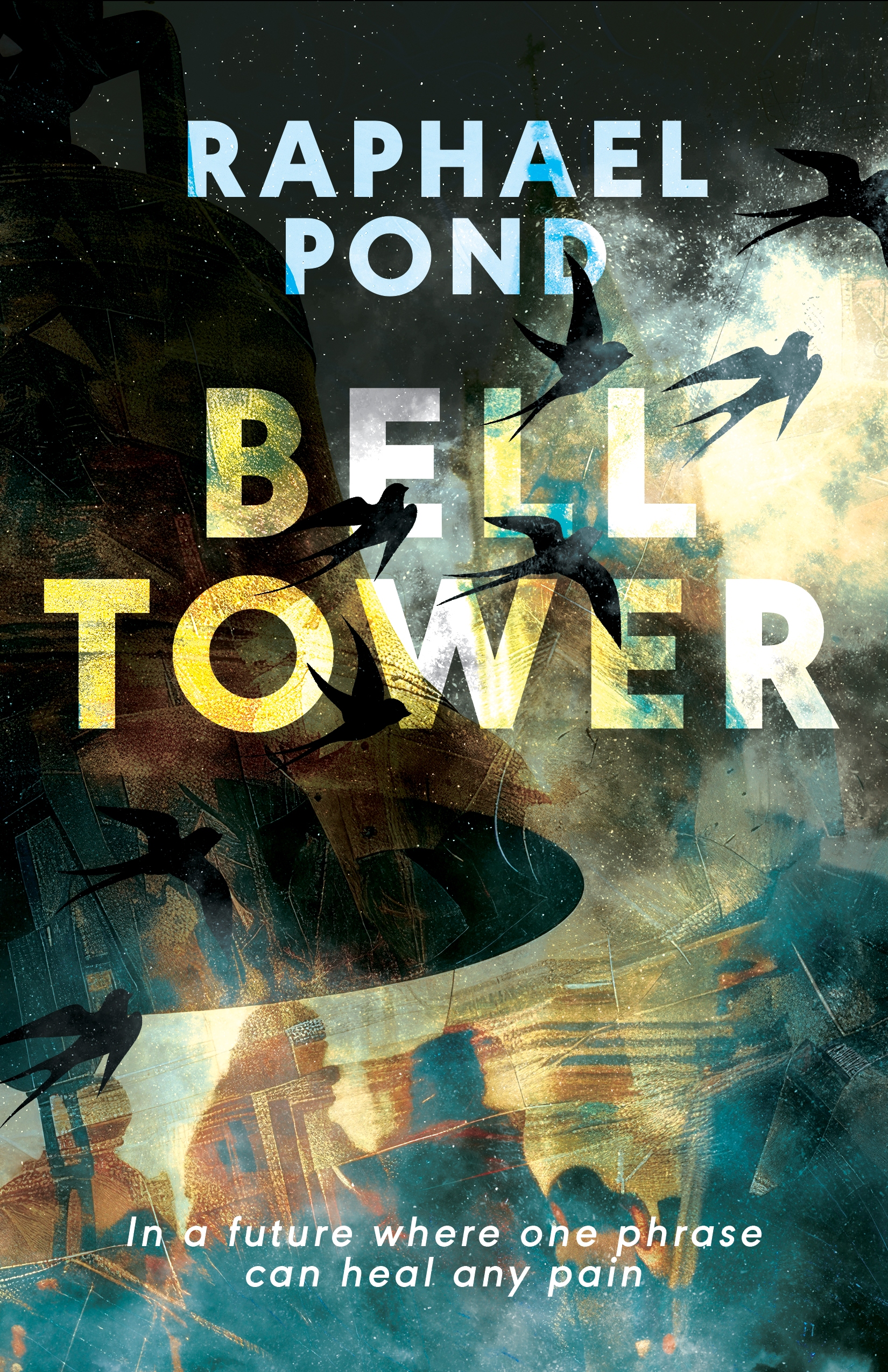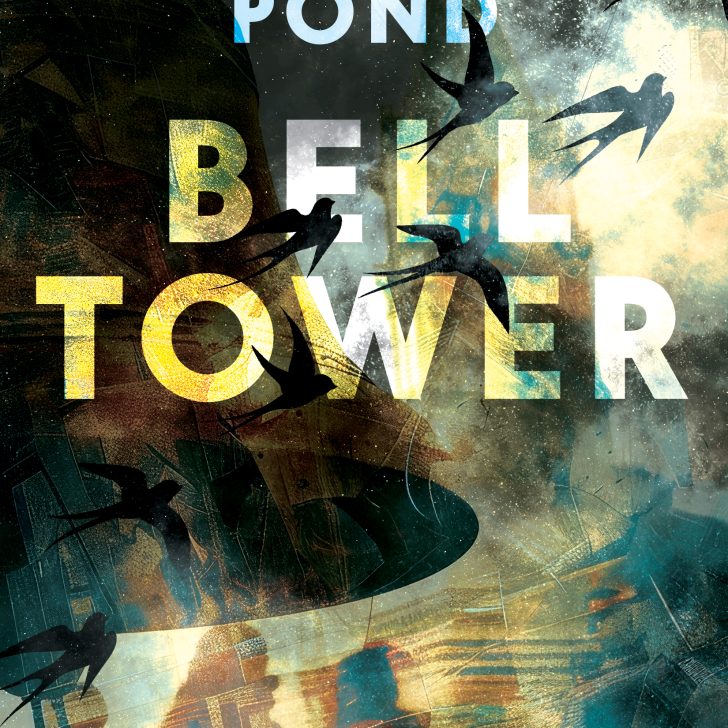About the Book, Bell Tower

Bell Tower
Author: Raphael Pond
In a future where one phrase can heal any pain, there exists a meditation unlike any other: Solosis. It’s a practice that forms an empathetic bond between two souls, unlocking unparalleled healing power. But its secrets are fiercely guarded by Sasha Sumzer, a mysterious meditation teacher with a darker agenda.
Sasha is determined to bring down Axiom, the social media giant that has reshaped society with its revolutionary Glow Domes—devices that have replaced smartphones and altered daily life forever. While Glow Domes captivate the masses, Sasha believes the human mind is the final frontier for true liberation.
As an unsuspecting group of individuals stumbles upon Sasha’s teachings, they become entangled in a dangerous game that forces them to question whether Solosis is a tool for healing or a weapon for control. To discover the truth , they must confront their deepest fears and decide what they’re willing to sacrifice to save the nation’s collective consciousness.
In this gripping thriller, the battle for the mind has begun—and the line between healing and manipulation is dangerously thin.
Bell Tower Review
I was compensated with a small amount for my time and effort in reading the book and writing this review. However, all thoughts and opinions expressed are my own and are based on my honest personal experience reading the book. Nor did the publisher in any way, shape, or form ever pressure me to give a positive review.
Set in a near-future society where empathy itself can be weaponized, Bell Tower is a gripping dystopian thriller that explores the human cost of unchecked technology. At the centre of the novel is Solosis, a mysterious form of connection that supposedly allows two people to share their innermost lives in just nine seconds, changing the concept of “getting to know each other” as we know it.
The practice is guarded by Sasha Sumzer, a meditation teacher with a combative vision to destroy “Axiom”, the powerful social media platform founded by his father. Who happens to be the mastermind behind “Glow Domes”, which is this world’s social media turned up to 12, as it is now directly embedded into people’s eyes, completely taking over their attention on a scale more extreme than the current world we live in.
With this exciting set-eup, Bell Tower examines how technology can fracture the human mind, and how stillness, silence, and connection might be our last chance at liberation in this technologically drowned out world.
I personally am really interested in the topic of present-day American tech giants and the growing discourse around their monopolistic behaviour. I’ve always believed there’s something deeply unsettling about how much influence these companies have over both our minds and markets. So naturally, I was drawn to this book.
Bell Tower does a fantastic job of taking these real-world concerns and blowing them up into something more dramatic for the sake of narrative, but in a way that still feels grounded in truth and the reality we know in our day-to-day. The effects of technology and social media on things like privacy, on individuality, and on our capacity to connect, are absolutely real, and I appreciated how the novel exaggerates these issues to shine a light on how dangerous they could become if left unchecked.
With that being said, I wouldn’t call myself a full-blown “anti-tech” person. I’m not against the existence of social media or the internet at all. In fact, I strongly believe that the benefits like access to information, creativity, and connectivity definitely outweigh the downsides. But the downsides are undeniable.
And that’s why I actually enjoy works like Bell Tower, they’re not about denying the value of technology, but about warning us what could happen when it’s used irresponsibly or becomes too deeply embedded in our lives. That balance makes this book good for me as someone who believe themselves to be more optimistic about the role of technology in our society.
I also really enjoyed how some characters are portrayed, ones like Ruxton are a great example of how the novel handles this. He represents addiction on both a literal and metaphorical level, struggling with substance abuse but also addicted to digital stimulation, much like the rest of the world in the story. I fortunately can’t relate to the physical addiction side, but the digital part is very relatable to myself. The way your brain starts to crave constant scrolling, instant feedback, and shallow stimulation is real. If reading wasn’t still one of my core hobbies, I think my attention span would be way worse by now.
That’s also why I really appreciated the book’s exploration of meditation and mindfulness. I feel like the internet, and just being online all the time, contributes to my anxiety. It makes me so impatient that even trying to meditate feels impossible. So it really resonated with me that the book treats meditation not as a cliché or gimmick, but as a meaningful, powerful response to the chaos of overexposure. I loved seeing mindfulness framed as something that can ground you again, especially when everything else in the world is demanding your attention all at once.
Another theme that really stood out to me and one that feels like the perfect note to end on, is the portrayal of isolation caused by technology. It’s something so many of us experience, but often in ways we don’t fully articulate. Even though we’re more digitally “connected” than ever, that connection can feel strangely hollow, more performative than personal. The book’s use of Sasha’s bell towers as a symbol of real, grounded human experience really hit home for me.
In a world of Glow Domes and Scrolling Centers, the bell towers feel like an act of resistance, which is a reminder that shared presence and true community still matter. Bell Tower left me with that lingering feeling that even in a future drowning in tech, the most revolutionary thing we can do might simply be to show up for each other, unplugged, unfiltered, and fully present. And that’s the satisfying takeaway I had after reading that makes me want to recommend to other readers as well.
Check Out Some of My Other Book Recommendations
About the Author of Bell Tower, Raphael Pond


Leave a Reply